Aravind Kalaiah
Differentiable NAS Framework and Application to Ads CTR Prediction
Oct 25, 2021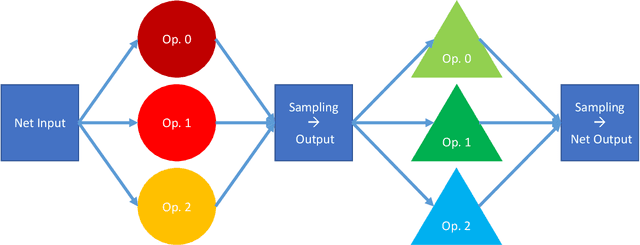
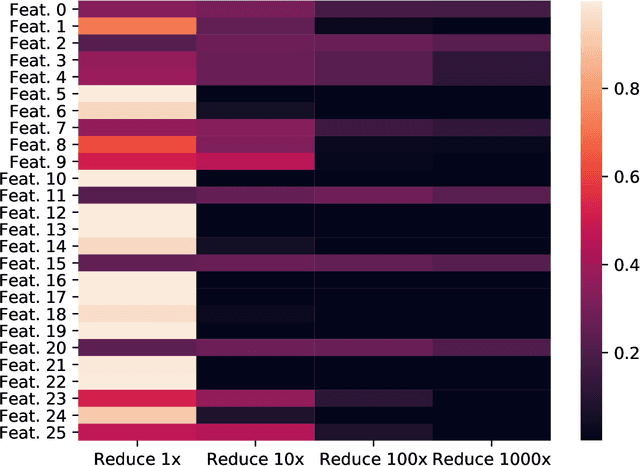
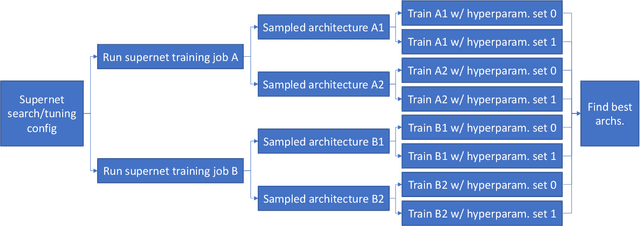

Abstract:Neural architecture search (NAS) methods aim to automatically find the optimal deep neural network (DNN) architecture as measured by a given objective function, typically some combination of task accuracy and inference efficiency. For many areas, such as computer vision and natural language processing, this is a critical, yet still time consuming process. New NAS methods have recently made progress in improving the efficiency of this process. We implement an extensible and modular framework for Differentiable Neural Architecture Search (DNAS) to help solve this problem. We include an overview of the major components of our codebase and how they interact, as well as a section on implementing extensions to it (including a sample), in order to help users adopt our framework for their applications across different categories of deep learning models. To assess the capabilities of our methodology and implementation, we apply DNAS to the problem of ads click-through rate (CTR) prediction, arguably the highest-value and most worked on AI problem at hyperscalers today. We develop and tailor novel search spaces to a Deep Learning Recommendation Model (DLRM) backbone for CTR prediction, and report state-of-the-art results on the Criteo Kaggle CTR prediction dataset.
CoSA: Scheduling by Constrained Optimization for Spatial Accelerators
May 05, 2021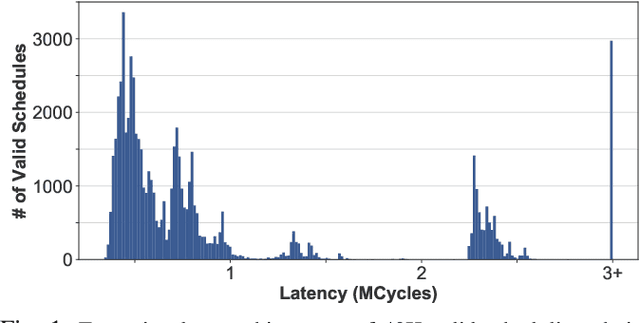
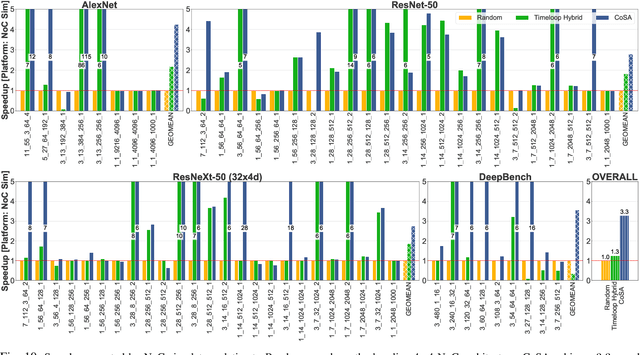
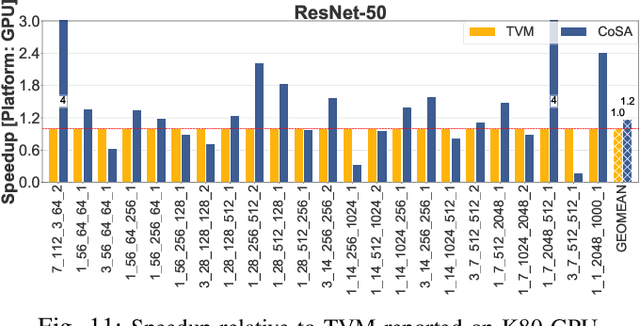
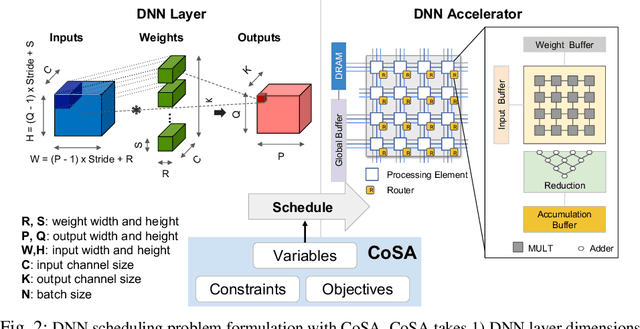
Abstract:Recent advances in Deep Neural Networks (DNNs) have led to active development of specialized DNN accelerators, many of which feature a large number of processing elements laid out spatially, together with a multi-level memory hierarchy and flexible interconnect. While DNN accelerators can take advantage of data reuse and achieve high peak throughput, they also expose a large number of runtime parameters to the programmers who need to explicitly manage how computation is scheduled both spatially and temporally. In fact, different scheduling choices can lead to wide variations in performance and efficiency, motivating the need for a fast and efficient search strategy to navigate the vast scheduling space. To address this challenge, we present CoSA, a constrained-optimization-based approach for scheduling DNN accelerators. As opposed to existing approaches that either rely on designers' heuristics or iterative methods to navigate the search space, CoSA expresses scheduling decisions as a constrained-optimization problem that can be deterministically solved using mathematical optimization techniques. Specifically, CoSA leverages the regularities in DNN operators and hardware to formulate the DNN scheduling space into a mixed-integer programming (MIP) problem with algorithmic and architectural constraints, which can be solved to automatically generate a highly efficient schedule in one shot. We demonstrate that CoSA-generated schedules significantly outperform state-of-the-art approaches by a geometric mean of up to 2.5x across a wide range of DNN networks while improving the time-to-solution by 90x.
Deep Learning Inference in Facebook Data Centers: Characterization, Performance Optimizations and Hardware Implications
Nov 29, 2018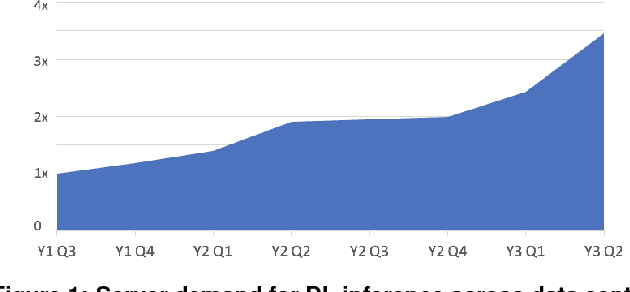

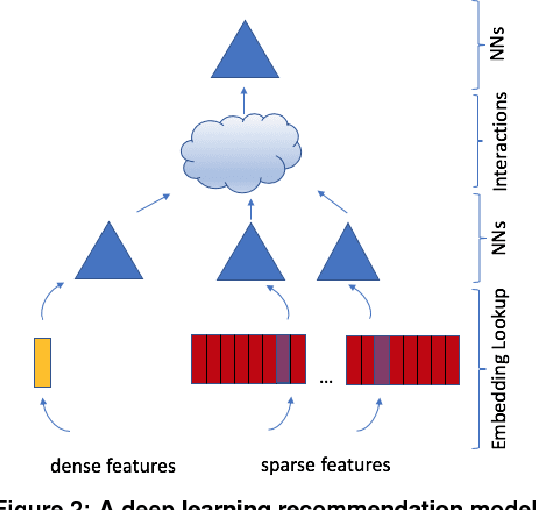
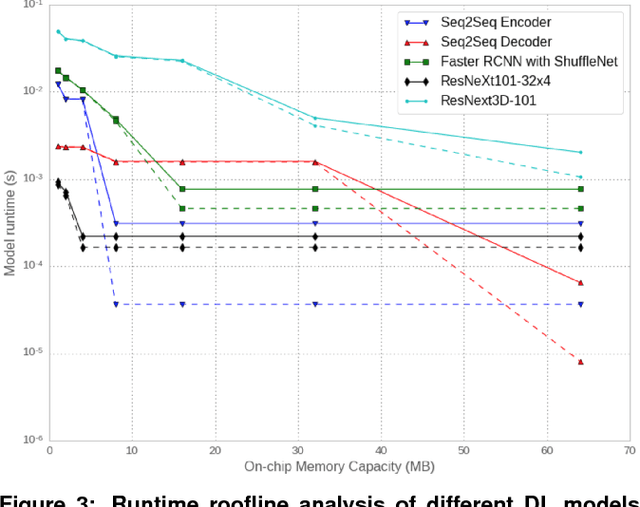
Abstract:The application of deep learning techniques resulted in remarkable improvement of machine learning models. In this paper provides detailed characterizations of deep learning models used in many Facebook social network services. We present computational characteristics of our models, describe high performance optimizations targeting existing systems, point out their limitations and make suggestions for the future general-purpose/accelerated inference hardware. Also, we highlight the need for better co-design of algorithms, numerics and computing platforms to address the challenges of workloads often run in data centers.
 Add to Chrome
Add to Chrome Add to Firefox
Add to Firefox Add to Edge
Add to Edge